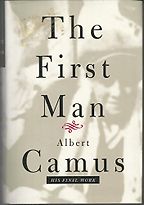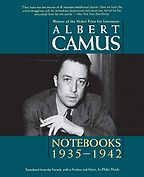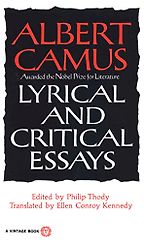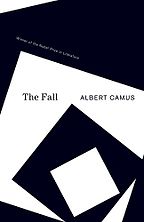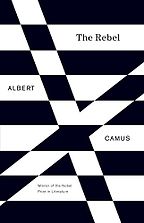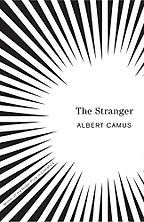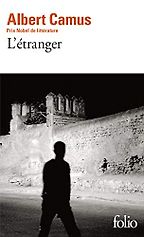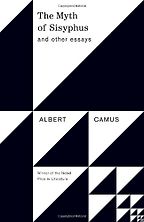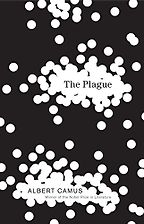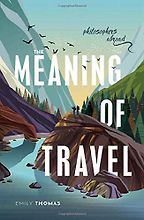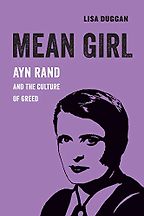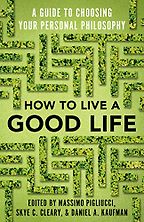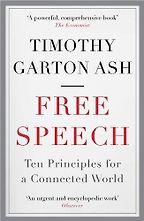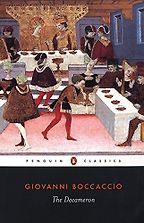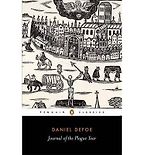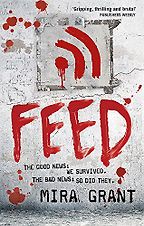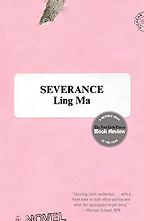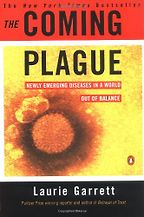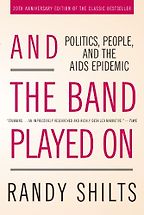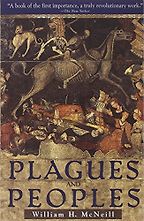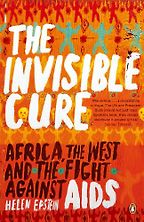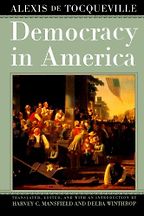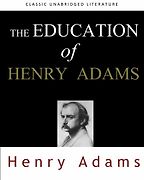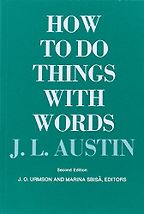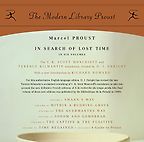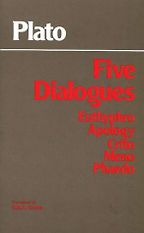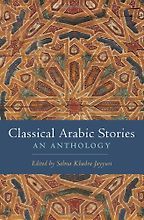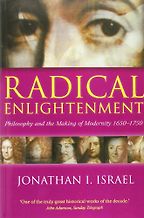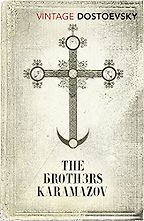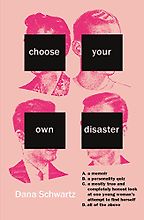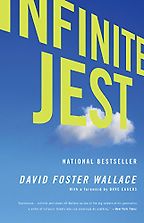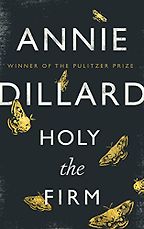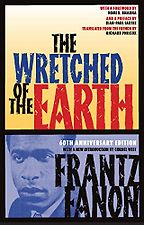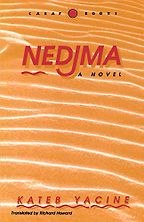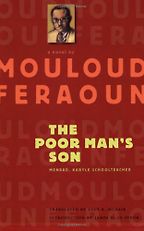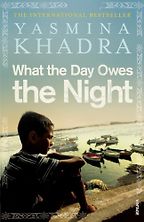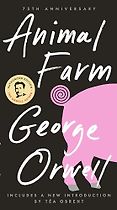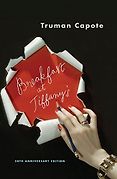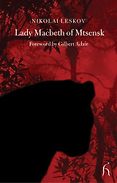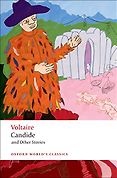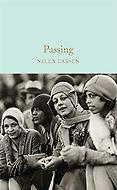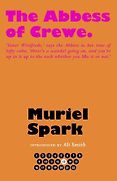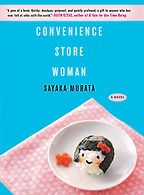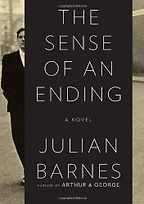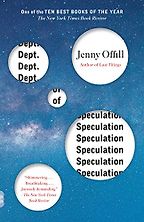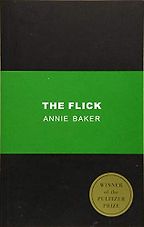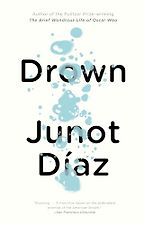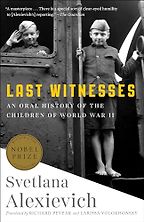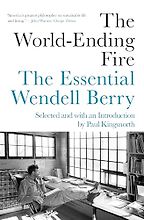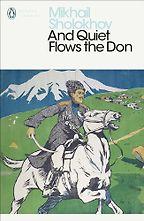Books by Albert Camus
“I love this book. It is Camus turning back to his roots in a very poor community in Algiers. This was a man whose moral compass was not the grand ideologies of the twentieth century, but how people like his illiterate grandmother would fit into it. There is throughout his writing a real empathy for ordinary human beings in complicated or conflicted situations, a sense that we could all be in their place.” Read more...
“These notebooks give many insights into Camus as a person, who he was and what he was trying to come to terms with day by day. They are indispensable, I think, for understanding what his larger project was throughout the rest of his writings.” Read more...
Jamie Lombardi, Philosopher
“This is a series of his political and literary essays that give you a sense both of who he was as a critical writer, as an essayist, and as a journalist, but also ties into his philosophy and the ideas that he was trying to make sense of.” Read more...
Jamie Lombardi, Philosopher
“This is my absolute favourite novel by Camus. It’s very short… One of the things that makes this one so interesting, particularly once you get a sense of who Camus was as a person, is how autobiographical it is and how much of this is him putting himself in the seat of judgment, trying to make sense of his own place in the world, his own decisions, and the impact that he’s had on other people… The narrator is telling the story of how, as he’s on the way home from work one night, a woman jumps from the bridge into the river and there’s this moment where he’s able to make a decision. He can turn back and save the woman, or he can continue on his path.” Read more...
Jamie Lombardi, Philosopher
“This is Camus’ most academic book. It’s his attempt to make sense of the historical, political, and literary influences that have shaped our world, and how they inform our values in an attempt to figure out where we must go next. This is not as lyrical a book as any of the others, although there’s a chapter at the end where he talks about transcending nihilism that is quite powerful and he’s at his most eloquent.” Read more...
Jamie Lombardi, Philosopher
“It’s the story of a character called Meursault. One day, he’s on the beach, and he shoots a character called an Arab. They have no specific name—he was an indigenous person on the beach. A trial takes place and we realize that Meursault is facing what Camus calls the ‘nakedness of man faced with the absurd.’ He is floating about, really. He doesn’t show empathy. He doesn’t show remorse. Everything is absurd. The novel starts, in fact, with him just finding out his mother has died. He doesn’t seem to be mourning or grieving or expressing strong feelings. To me, it’s a very, very important book. It’s an allegory of Algeria and the colonial system, because lots of people in Algeria were behaving like Meursault, in a way.” Read more...
Xavier Le Clerc, Novelist
L'Etranger
by Albert Camus
Ebooks are great for learning to read in a foreign language and, as a good book to start out with, Five Books contributing editor Ben King has selected L’Etranger, by the great French existentialist author Albert Camus. Translators are constantly making difficult decisions about how to render words in English—including in L’Etranger’s opening lines—so it’s almost always better to read a great work of literature in the original, if you can.
Normally, when you embark on reading books in a language you’ve studied, you need a dictionary to hand for the many new words you come across, which makes the going prohibitively slow and boring. With ebooks, you can have a dictionary open permanently. Whenever you come across a word, you simply press it and the translation—along with the full dictionary entry, to check idiomatic usage etc—appears instantly.
If you studied French at school, there’s no reason not to have a go at L’Etranger. It’s reasonably short and the French is reasonably simple. Impress yourself!
“The Myth of Sisyphus is a small work, but Camus’s meditation on faith and fate has personally been hugely important in developing my ideas. Writing in the embers of World War II, Camus confronts in The Myth of Sisyphus both the tragedy of recent history and what he sees as the absurdity of the human condition.” Read more...
The best books on Morality Without God
Kenan Malik, Science Writer
“It has been said that he did extensive research for The Plague. The ‘plague’ is generally taken to be a metaphor or meta-commentary on Nazism during World War II. I’m not necessarily sold on that as the exclusive interpretation of the novel. Other people have argued that he was reading about plagues during the time that he was writing this. But one thing that’s really interesting in the background is that, for at least a period of time while writing the novel, Camus was trying to recover from a bout of tuberculosis and he was staying in a village in southern France in the Free Zone (Vichy). The remarkable events that took place there were the basis for the book called Lest Innocent Blood be Shed by Philip Paul Hallie. In this small, poor, rural village they banded together and pooled their resources to save somewhere between three and five thousand Jews from the Nazis. Camus was in this village as this was happening, as people were hiding, as they were separated from their loved ones, while he himself was separated from his loved ones. So, I’m not sure to what degree the astute nature of his writing can be attributed to his reading about previous plagues, or to his first-hand experience of being bedridden with an illness, embedded in a town where people were hiding from a much more militaristic and malignant sort of ‘plague’.” Read more...
Jamie Lombardi, Philosopher
Interviews where books by Albert Camus were recommended
The Best Albert Camus Books, recommended by Jamie Lombardi
Albert Camus was born in northern Algeria in extreme poverty, but went on to become one of the best-known French philosophers of the 20th century. In 1957, he won the Nobel Prize in Literature for illuminating “the problems of the human conscience in our times.” Here, Camus expert Jamie Lombardi talks us through the books that best capture his work and the moral dilemmas he sought to explore.
-

1
The Meaning of Travel: Philosophers Abroad
by Emily Thomas -

2
Mean Girl: Ayn Rand and the Culture of Greed
by Lisa Duggan -

3
How to Live a Good Life: A Guide to Choosing Your Personal Philosophy
by Daniel Kaufman, Massimo Pigliucci & Skye C Cleary -

4
Free Speech: Ten Principles for a Connected World
by Timothy Garton Ash -

5
The Plague
by Albert Camus
Summer Reading: Philosophy Books, recommended by Nigel Warburton
Summer Reading: Philosophy Books, recommended by Nigel Warburton
From reflections on travel and searching for a personal philosophy to live by, to books on important aspects of democracy and contagious diseases, here’s British philosopher Nigel Warburton’s 2020 summer reading list. All the books you need to keep you thinking over the summer, whatever it may hold and wherever you may be.
The Best Books to Read in Quarantine, recommended by Jenny Davidson
Times of disease and pestilence have much to tell us about the human condition. Jenny Davidson, Professor of English and Comparative Literature at Columbia University, suggests some of the best books to read if you’re self-isolating or in quarantine.
The best books on HIV/Aids, recommended by Arthur Ammann
When dealing with epidemics, science does not have all the answers and relying on a new miracle drug is not always the solution. We must also learn the lessons of history, argues the veteran doctor of the HIV/Aids epidemic, Arthur Ammann.
Stephen Breyer on his Intellectual Influences
US Supreme Court Justice Stephen Breyer talks about the books that have influenced his thinking and explains why reading widely, including literature, is essential for judges and lawyers.
The best books on Morality Without God, recommended by Kenan Malik
Religion is often presented as the guardian of moral values. The problem with this, says the author and broadcaster Kenan Malik, is that it diminishes what it means to be human. He picks the best books on morality without God.
Books to Read as Ebooks, recommended by Five Books
If you’re of a certain age, reading a physical, paper book is almost always a more pleasurable experience than reading on an electronic device. Still, ebooks have some advantages that make them difficult to resist, not least of which is cost. Here Five Books editors share tips on when they’ve found ebooks particularly useful.
The best books on Algeria, recommended by Xavier Le Clerc
In his book, A Man With No Title, Xavier Le Clerc tells the story of his father, who was born in extreme poverty in the mountains of Algeria and emigrated to France to give his children a better life. Here he recommends books by some of Algeria’s greatest writers—and explains how they shed light on his father’s life and Algeria’s experience of French colonialism.
Short Classic Books
Classic books have stood the test of time and continue to appeal to new readers, but they can feel intimidating. Whether you want to ease your way into classic literature by starting with shorter books, don’t have much time to read, or simply admire writers who are able to say more with less, below is a list of short classic books recommended by experts on Five Books over the years.
Very Short Books You Can Read In A Day, recommended by Cal Flyn
Talked a lot of big talk about writing that novel in lockdown, or repainting the house? Us too. When it came down to it, many of us have felt too frantic to take on big projects – and that goes for our reading lives too. Here, Five Books deputy editor Cal Flyn recommends some very short books that might be read over the course of a day or, being small and easily surmountable, might just break a reading drought.
Modern Classics, recommended by James Rebanks
It’s notoriously difficult to recognise great works of literature at the time of publication, but certain books come to the fore as ‘modern classics’: exceptional texts that will stand the test of time. We asked James Rebanks, the Lake District shepherd and celebrated author, to recommend five books that deserve the label.
